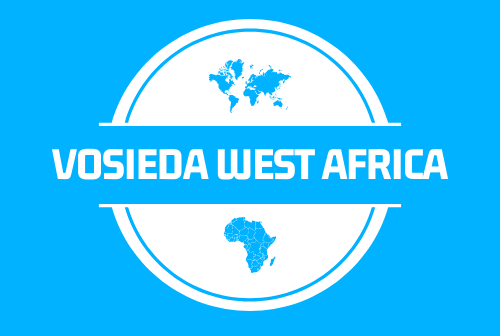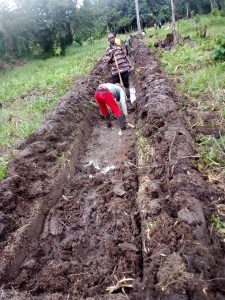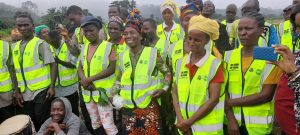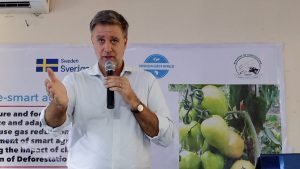Women, Girls, and Risk of Violence and Affected Livelihoods in Liberia and the Mano River Union
Evidence from the early periods of the COVID-19 pandemic indicates that there will be an unequal and disproportionate impact of the COVID-19 pandemic on women and girls, especially in West Africa Mano River Basin region. Past disease outbreaks, including the 2014-2016 Ebola outbreak in the region, demonstrated the innumerable ways disease epidemics exacerbate gender inequities and gender-based violence, as well as provide clues on steps that can be taken to mitigate them.
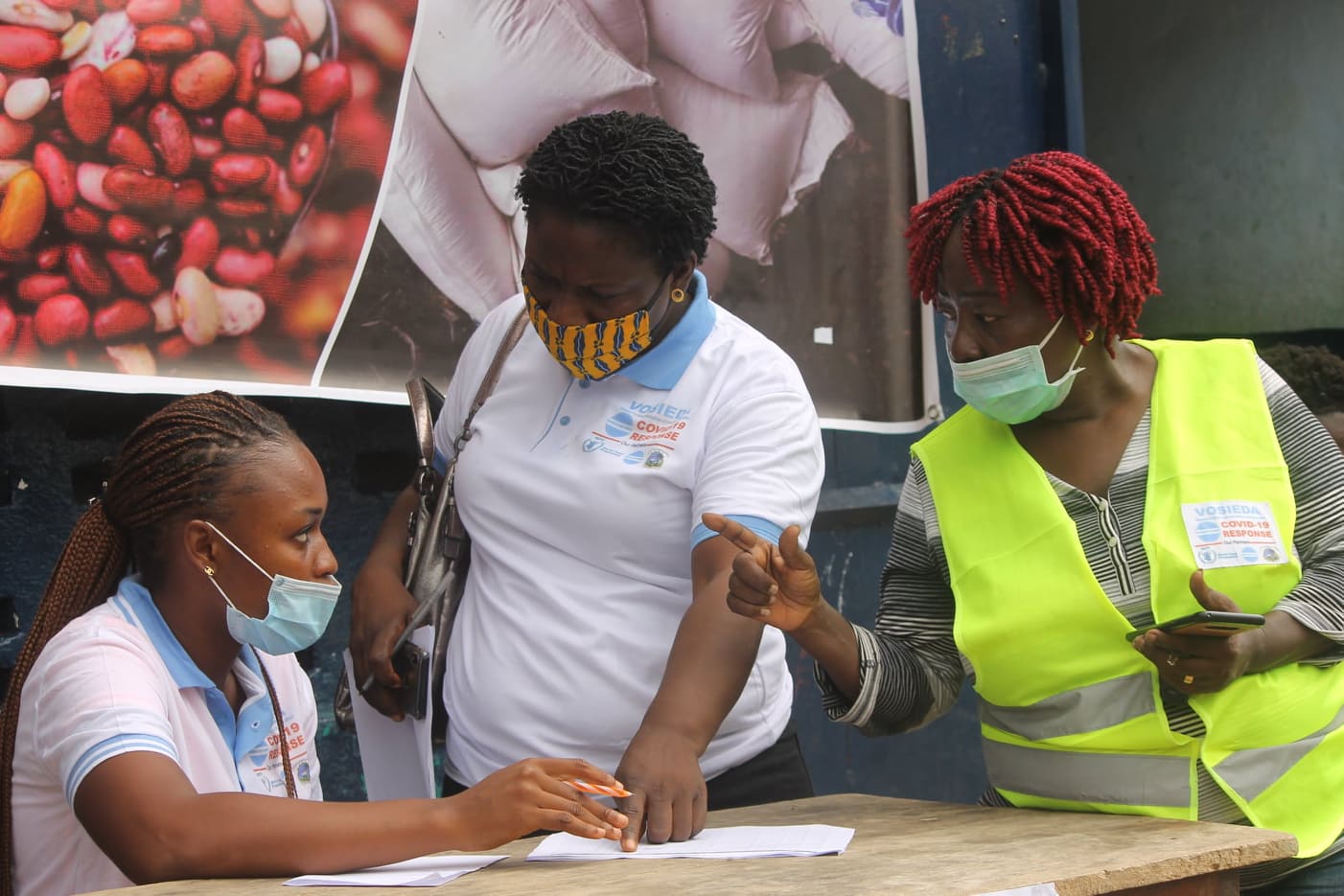
As COVID 19 pandemic rages, women, and girls in Liberia and Mano River Union Basin region are facing increasing risk of violence, loss of livelihoods, and other threats under the pandemic. Consequently, VOSIEDA’s COVID 19 response teams are working around the clock to respond by advocating for gender-sensitive responses and providing support to the vulnerable and those affected.
In Liberia and the entire Mano River Union Basin region of West Africa, nearly 60 percent of women work in the informal economy, earning less, saving less, and at greater risk of falling into poverty.
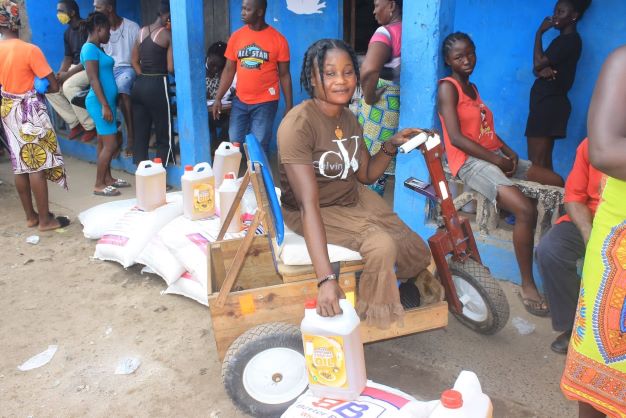
The existing crisis of violence against women and girls (VAWG) has increased in the context of COVID-19, especially in fragile and post conflict environment. As a result, VOSIEDA’s COVID – 19 Response Team is working to empowers women and girls during COVID-19 lock down across Liberia.
Violence against women and Vulnerable populations:
Although the spread of COVID-19 is nondiscriminatory, mounting evidence has revealed that it has further compounded existing inequalities putting already marginalized women and girls, often with weaker access to political and economic power, at greater risk in Liberia and the MRU Basin. The risk is not only about contracting the coronavirus itself but also to the direct and indirect consequences of lock-down, including escalation of sexual and gender-based violence and inmate partner violence.
Frequently, sexual and gender-based violence is a hidden consequences of disasters such as of the COVID-19 pandemic. As communities around the subregion are forced to stay at home, women and girls are at a heightened risk of domestic violence, intimate partner violence, child abuse, and other forms of sexual and gender-based violence. In Liberia and the MRU Basin, reports from communities indicates that multiple forms of violence are exacerbated within crisis contexts, placing women and girls and individuals belonging to marginalized, minority or vulnerable group at greater risk of exploitation and sexual violence.
Learning from the Ebola pandemic point to the impact on women’s economic security:
Assessment of the gender dimensions of the Ebola Virus, showed that quarantines can significantly reduce women’s economic and livelihood activities, increasing poverty rates, and exacerbating food insecurity.In Liberia where approximately 85 per cent of daily market traders are women working informally, Ebola prevention measures which included travel restrictions severely impacted women’s livelihoods and economic security. Similarly, the impacts of COVID 19 are already being felt, for both women and men, in local communities affected by COVID- 19 where schools and businesses have closed to enforce social distancing in Liberia and across the subregion.
Yes, the coronavirus pandemic has taken a significant toll on women’s livelihoods, as school closures increase the burden of domestic care that typically falls on women, and as travel restrictions affect service industries and informal labor dominated by female workers in Liberia and the subregion. Also, as markets fall and businesses close, millions of women’s jobs have disappeared in the region.
Many families are also facing heightened tensions, financial uncertainties, and other pressures, putting women and girls at risk of intensified vulnerabilities and sexual exploitation, as reports from communities indicate. In addition, the pandemic and its attendant stresses have also increased the risk of domestic abuse and other forms of gender-based violence, including exacerbated sexual exploitation for women and children in Liberia and the subregion.
VOSIEDA is working the United Nations World Food Program (WFP) and other partners to turn COVID -19 challenges into opportunities… putting women, girls, and vulnerable people at the heart of response and recovery in Liberia and West Africa’s Mano River Union Basin.
Empowering Women and Girls to Better Prepare, Respond, and Recovery from Impacts of COVID-19
Fighting poverty, and its root cause and consequences and women empowerment are among VOSIEDA’s foremost priorities in West Africa’s Mano River Basin. Because of this, the organization is supporting efforts to promote proper handwashing techniques, supporting vulnerable populations to stay healthy, battling COVID-19 misinformation by helping health authorities communicate lifesaving information about COVID-19. Besides, VOSIEDA is empowering women and girls to better prepare, respond, and recovery from impacts of COVID-19 economically. We are providing support for entrepreneurs and small-business owned and operated by women and other vulnerable populations.
VOSIEDA is also working in Liberia and the subregion to address violence against women and girls by support for victims of gender-based violence and access to justice.
The COVID-19 pandemic has also posed a severe threat to the achievement of gender-related SDGs. It jeopardizes some of the improvements observed between 2015 and 2020 in several aspects of gender equality and women’s empowerment in Liberia and the Subregion. Furthermore, predictions indicates that the crisis’ economic and social consequences will exacerbate existing inequalities and discrimination against women and girls, especially against the most marginalized and those in extreme poverty. We are working to lessen the impacts of COVID-19 and its implications for women and the Sustainable Development Goals (SDGs) by fighting poverty and empowering women in their efforts to take part in decision-making at all levels and promote leadership and participation of women. In our development projects, we tailor our activities towards meeting the different needs of women and men in a way that promotes equality between them.
Our priority is to empower women and girls to defeat poverty and achieve equality. We focus on women and girls because we believe we cannot overcome poverty until everyone has equal rights and opportunities. You may click our women’s empowerment & gender equality programme to read more.
